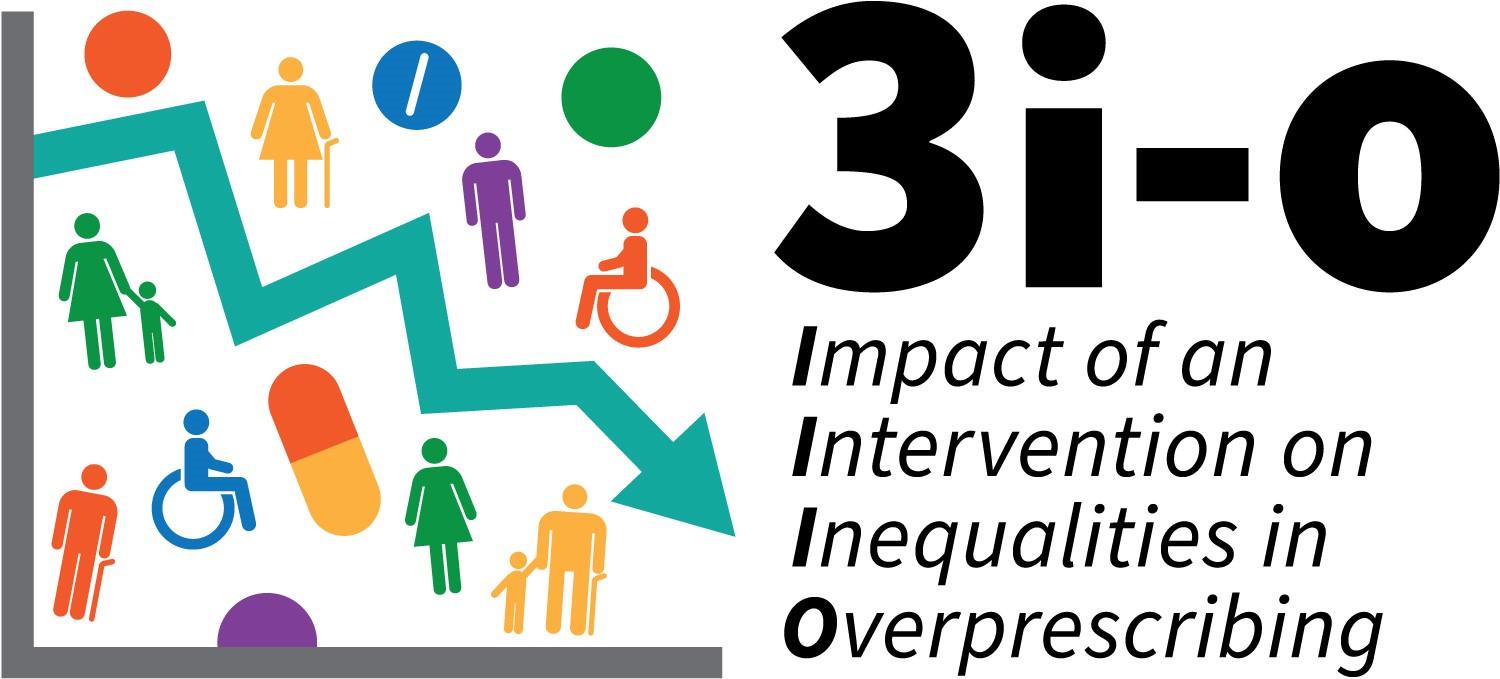Research project
Impact of an Intervention on Inequalities in Overprescribing - the 3i-o study
- Start date: 1 January 2024
- End date: 31 December 2025
- Funder: National Institute for Health and Care Research (NIHR)
- Value: £927,568.71
- Partners and collaborators: NHS West Yorkshire Integrated Care Board – West Yorkshire Research and Development North East Commissioning Service
- Primary investigator: Dr Sarah Alderson
- Co-investigators: Prof Robbie Foy, Dr Bethan Copsey, Dr Amy Russell (LIHS), Dr Ruben Mujica-Mota, Dr Su Wood
- External co-investigators: Dr Tasneem Khan (Rooley Lane Medical Practice), Mr Paul Carder (Ywr&D), Ms Stella Johnson (WYR&D), Ms Victoria Bartle (PPI collaborator)

Description
Patients often receive medicines that they do not want, do not need or that can do more harm than good. This is called overprescribing. It increases the risks of side effects from medicines, hospital admissions and even deaths. Overprescribing also wastes medicines, time and money. Overprescribing is strongly linked to health inequalities, the avoidable and unfair differences in health between different groups of people. It especially affects vulnerable people, those from deprived areas and Black and Minority Ethnic communities. Poorer areas are linked with more prescriptions of addictive painkillers and antibiotics, which our study will look at.
There are several approaches to reduce overprescribing. One of them, audit and feedback, means showing clinicians (GPs, pharmacists and nurses) how much they prescribe compared to other clinicians. The feedback highlights those who prescribe more than others so that they can make changes to reduce this. Most NHS prescribing (and overprescribing) happens in general practice. We have already run a feedback campaign that reduced overprescribing of addictive painkillers in general practice. We are now running a similar campaign to reduce unnecessary antibiotic prescribing. This type of feedback often works in reducing overprescribing. However, we want to find out if it works without making it more difficult for some people to get the health care they need, making health inequalities worse. We also want to find out what clinicians and patients think is the right balance between reducing overprescribing overall and reducing inequalities in overprescribing.
We have chosen three locations to study in the North of England with high levels of poverty, ethnic diversity and which cover both rural and urban places - all known influences on overprescribing. Our study has four research goals.
Firstly, we will analyse changes in prescribing by practice and patient characteristics using data from primary care health records before and after the feedback was delivered. This will help us understand any impacts on prescribing inequalities for practices and patients.
Secondly, we will interview patients about their experiences of reduced prescribing and its impact on inequalities. We will ask clinicians and practice managers about their views on the impacts of the feedback on health inequalities and how local patterns of care changed.
Thirdly, we will examine what people think is an acceptable balance between improving everybody’s health or reducing health inequalities in specific groups of people.
Finally, we will bring all the study findings together in workshops including patients, clinicians and policymakers. We will develop practical guidance on how to deliver audit and feedback in general practice to reduce both overprescribing and inequalities.
We will work with a diverse patient and public involvement and experience group (including members of minority communities and different socioeconomic backgrounds) throughout this project. They will advise on our research, especially on how to include practices and patients from diverse and underserved areas. They will also guide us on how best to share our research findings and get them into everyday practice. We will openly share our research findings via the project website and shared widely through professional associations, conferences and journals, patient organisations and accessible videos.

